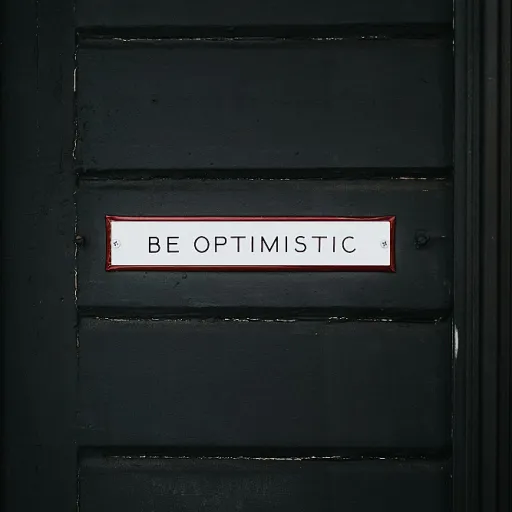
Understanding rti back office in recruitment outsourcing
What Sets RTI Back Office Apart in Recruitment Outsourcing?
Recruitment process outsourcing (RPO) is evolving fast, and the role of RTI back office solutions is becoming more central. For companies in the restaurant industry, where managing food, labor costs, and menu updates is a daily challenge, integrating a robust back office system can make a real difference. RTI back office, often paired with software like Xenial or Sicom, offers a cloud-powered, hardware-agnostic approach that streamlines restaurant management from the ground up.
At its core, RTI back office is more than just software. It’s a suite of tools designed to handle the administrative and operational side of recruitment for restaurants and hospitality businesses. This includes everything from applicant tracking to onboarding, scheduling, and compliance management. With the rise of cloud POS and cloud-based management platforms, companies can now access powerful back office features without being tied to specific hardware or on-premise systems.
- Cloud-powered flexibility: Access your back office solution from anywhere, making it easier to manage multiple restaurant locations or franchises.
- Integration with restaurant management: RTI back office connects seamlessly with POS systems, menu management, and labor scheduling, reducing manual entry and errors.
- Cost and time savings: Automating repetitive tasks helps reduce labor costs and frees up time for managers to focus on customer experience and food quality.
For those looking to understand how a talent management agency or talent assistant can further transform recruitment process outsourcing, exploring the integration of RTI back office solutions is a smart first step. As we move forward, it’s important to look at the specific functions and features that make RTI back office a key player in the recruitment landscape for restaurants and hospitality companies.
Key functions of rti back office in recruitment
Core Components That Drive Efficiency
RTI back office solutions play a pivotal role in recruitment process outsourcing, especially for industries like restaurant management where speed and accuracy are essential. These systems are designed to streamline repetitive tasks, manage large volumes of candidate data, and support compliance requirements. By integrating with existing restaurant management software and cloud POS systems, RTI back office tools help companies reduce manual errors and save valuable time.
Key Features Supporting Recruitment Operations
- Automation of Administrative Tasks: RTI back office software automates job postings, candidate tracking, and interview scheduling. This reduces the administrative burden on HR teams and allows them to focus on more strategic activities.
- Data Management: Centralized databases store candidate information, making it easier to search, filter, and analyze applicant pools. This is particularly useful for restaurant chains managing high-volume hiring across multiple locations.
- Integration with Restaurant Systems: Many RTI back office solutions are hardware agnostic and cloud powered, allowing seamless integration with restaurant POS, menu management, and labor cost tracking systems. This ensures that recruitment aligns with operational needs, such as food labor requirements and shift scheduling.
- Compliance and Reporting: Automated compliance checks and customizable reporting tools help companies meet regulatory requirements and monitor key performance indicators in real time.
Enhancing Recruitment with Technology
Modern RTI back office solutions, such as those offered by Sicom and Xenial, provide cloud-based platforms that support both scalability and flexibility. These products are designed to be compatible with a wide range of restaurant management systems, making them suitable for both small businesses and large enterprises. With features like menu management, labor cost analysis, and cloud POS integration, RTI back office tools help companies optimize their recruitment processes while controlling costs.
For a deeper understanding of how technology shapes effective recruitment, you can explore how talent assessments shape effective recruitment process outsourcing.
Benefits of integrating rti back office solutions
Unlocking Efficiency and Reducing Costs
Integrating RTI back office solutions into recruitment process outsourcing brings a new level of efficiency and cost control. By automating repetitive administrative tasks, companies can redirect valuable time and resources toward more strategic recruitment activities. This is especially important for businesses in the restaurant industry, where managing food, labor, and menu changes can be complex and time-consuming.
Centralized Data and Streamlined Management
With a cloud-powered RTI back office system, recruitment teams benefit from a centralized platform that connects seamlessly with other restaurant management software and products. This integration allows for real-time access to critical data, such as labor costs, scheduling, and compliance. The hardware-agnostic nature of solutions like Xenial RTI means they can adapt to various POS and management systems, making them suitable for restaurants of all sizes.
- Improved accuracy in tracking applicant data and onboarding progress
- Reduced manual errors thanks to automated workflows
- Enhanced collaboration between HR, operations, and restaurant management teams
Scalability and Flexibility for Growing Businesses
Cloud POS and back office solutions, such as those offered by Sicom and Xenial, are designed to scale with the needs of growing restaurant companies. Whether managing a single location or a multi-unit chain, these systems provide the flexibility required to adapt to changing recruitment demands. The ability to update menu items, monitor food and labor costs, and manage compliance from a single platform is a powerful advantage.
Supporting Better Hiring Decisions
By leveraging RTI back office software, recruitment teams gain deeper insights into candidate pipelines and hiring metrics. This data-driven approach supports more informed decision-making, ensuring that the right talent is brought on board efficiently. For a closer look at how preliminary interviews fit into this process, explore this detailed guide on the role of a preliminary interview in recruitment process outsourcing.
Challenges faced when implementing rti back office
Common Obstacles in Adopting RTI Back Office Solutions
While RTI back office systems offer powerful advantages for recruitment process outsourcing, companies often encounter several hurdles during implementation. These challenges can impact the efficiency and effectiveness of both recruitment and restaurant management operations, especially when integrating with existing software and hardware environments.
- Integration with Legacy Systems: Many organizations rely on established restaurant management or POS software. Migrating to a cloud-powered, hardware agnostic RTI back office solution can be complex, especially if the current system is not compatible with modern products or cloud POS platforms.
- Data Security and Compliance: Handling sensitive recruitment and food labor data requires robust security protocols. Ensuring compliance with industry regulations and protecting company information is a significant concern, particularly when using cloud-based office solutions.
- Change Management: Employees and management may resist transitioning from familiar back office processes to new RTI or Xenial RTI systems. Training is required to help teams adapt to new workflows, menu management tools, and reporting features.
- Cost and Resource Allocation: Upfront investment in software Xenial, RTI back office, or Sicom systems can be substantial. Companies must balance the costs of new technology with the expected long-term savings in labor costs and operational efficiency.
- Customization and Scalability: Not all RTI back office products offer the flexibility required for unique restaurant or recruitment needs. Ensuring the system can scale with business growth and adapt to menu or labor changes is crucial for sustained success.
Addressing Technical and Operational Gaps
Another challenge is ensuring seamless communication between the RTI back office and other management tools. For example, integrating food and labor cost tracking with menu updates or POS data requires careful configuration. If the system is not properly set up, it can lead to data silos, reporting errors, or delays in decision-making.
Additionally, cloud-powered solutions depend on reliable internet connectivity. Restaurants or recruitment offices in areas with unstable networks may experience disruptions, affecting real-time access to key features and reports.
Ensuring User Adoption and Ongoing Support
Finally, successful implementation of RTI back office solutions hinges on continuous support and training. Without ongoing education, users may not fully leverage the system’s capabilities, such as advanced menu management, labor scheduling, or analytics. Investing in support resources and regular updates helps maximize the value of the office solution and ensures it remains aligned with evolving company needs.
Best practices for optimizing rti back office operations
Streamlining Workflows for Consistency
A well-optimized rti back office is essential for recruitment process outsourcing companies aiming to deliver consistent results. Standardizing workflows across restaurant management and recruitment operations helps reduce errors and ensures that every step, from candidate sourcing to onboarding, is tracked and managed efficiently. Using cloud-powered office solutions, such as software xenial or sicom, allows teams to access real-time data and collaborate seamlessly, regardless of location or hardware.Leveraging Automation and Integration
Integrating powerful back office software with existing restaurant POS systems and menu management tools can significantly cut down on manual work. Automation of repetitive tasks, like scheduling interviews or managing candidate documentation, frees up time for recruiters to focus on more strategic activities. Cloud POS and hardware agnostic solutions make it easier to connect various products and systems, reducing labor costs and improving overall efficiency.Continuous Training and Support
To get the most out of rti back office solutions, ongoing training is required for all team members. This includes familiarizing staff with new features, updates, and best practices for using the software. Providing accessible support channels ensures that any issues are resolved quickly, minimizing downtime and maintaining productivity.Monitoring Key Metrics and Adapting
Regularly tracking key features and performance indicators—such as time to hire, food labor costs, and candidate quality—enables companies to identify bottlenecks and areas for improvement. Cloud-based management systems offer dashboards and reporting tools that make it easy to monitor progress and adapt strategies as needed. This data-driven approach helps recruitment outsourcing providers stay agile in a competitive market.Ensuring Data Security and Compliance
With sensitive information flowing through rti back office systems, robust security protocols are non-negotiable. Implementing secure cloud solutions and maintaining compliance with industry standards protects both the company and its clients. Regular audits and updates to the office solution help safeguard data and build trust with stakeholders.- Standardize workflows for efficiency
- Automate repetitive tasks with integrated software
- Invest in continuous training and support
- Monitor metrics and adapt processes
- Prioritize security and compliance
By focusing on these best practices, recruitment process outsourcing providers can maximize the value of their rti back office investments, delivering better results for both clients and candidates in the restaurant and hospitality sectors.
Future trends in rti back office for recruitment outsourcing
Emerging Technologies Shaping Back Office Efficiency
Recruitment process outsourcing is evolving rapidly, and the back office is at the heart of this transformation. Companies are increasingly adopting cloud powered solutions and hardware agnostic systems, which allow for seamless integration across various platforms. This flexibility is especially valuable for restaurant management, where software xenial and rti back office solutions must adapt to changing menus, food labor requirements, and fluctuating labor costs.
Cloud POS and Automation: The New Standard
Cloud POS systems are becoming a staple in both restaurants and recruitment outsourcing. These systems streamline menu management, food ordering, and labor tracking, reducing the time and costs required for administrative tasks. Products like xenial rti and sicom offer powerful back office features that help companies manage their workforce more efficiently. Automation is also reducing manual errors and freeing up staff to focus on higher-value activities.
Integration and Data-Driven Decision Making
Modern back office software is designed to integrate with a variety of restaurant and recruitment systems. This integration enables real-time data sharing, which supports better decision making. For example, cloud powered office solutions can analyze food and labor costs, track key features of employee performance, and optimize scheduling. These insights are essential for companies aiming to stay competitive in a fast-paced environment.
Focus on Scalability and Security
As recruitment outsourcing grows, scalability and security are becoming top priorities. Cloud solutions allow companies to scale their operations up or down as needed, without investing in expensive hardware. At the same time, robust security protocols protect sensitive data, ensuring compliance with industry regulations. This is particularly important for restaurants and other businesses handling large volumes of personal information.
What to Watch For
- Increased adoption of AI-driven analytics for workforce and menu optimization
- Greater emphasis on mobile-friendly and hardware agnostic back office systems
- Continued integration of restaurant management and recruitment software
- Enhanced focus on reducing food labor costs through automation
Staying ahead in recruitment process outsourcing means keeping an eye on these trends and being ready to adapt. Companies that leverage powerful, cloud-based back office solutions will be better positioned to manage costs, improve efficiency, and deliver superior results—whether in restaurants or any other sector.













